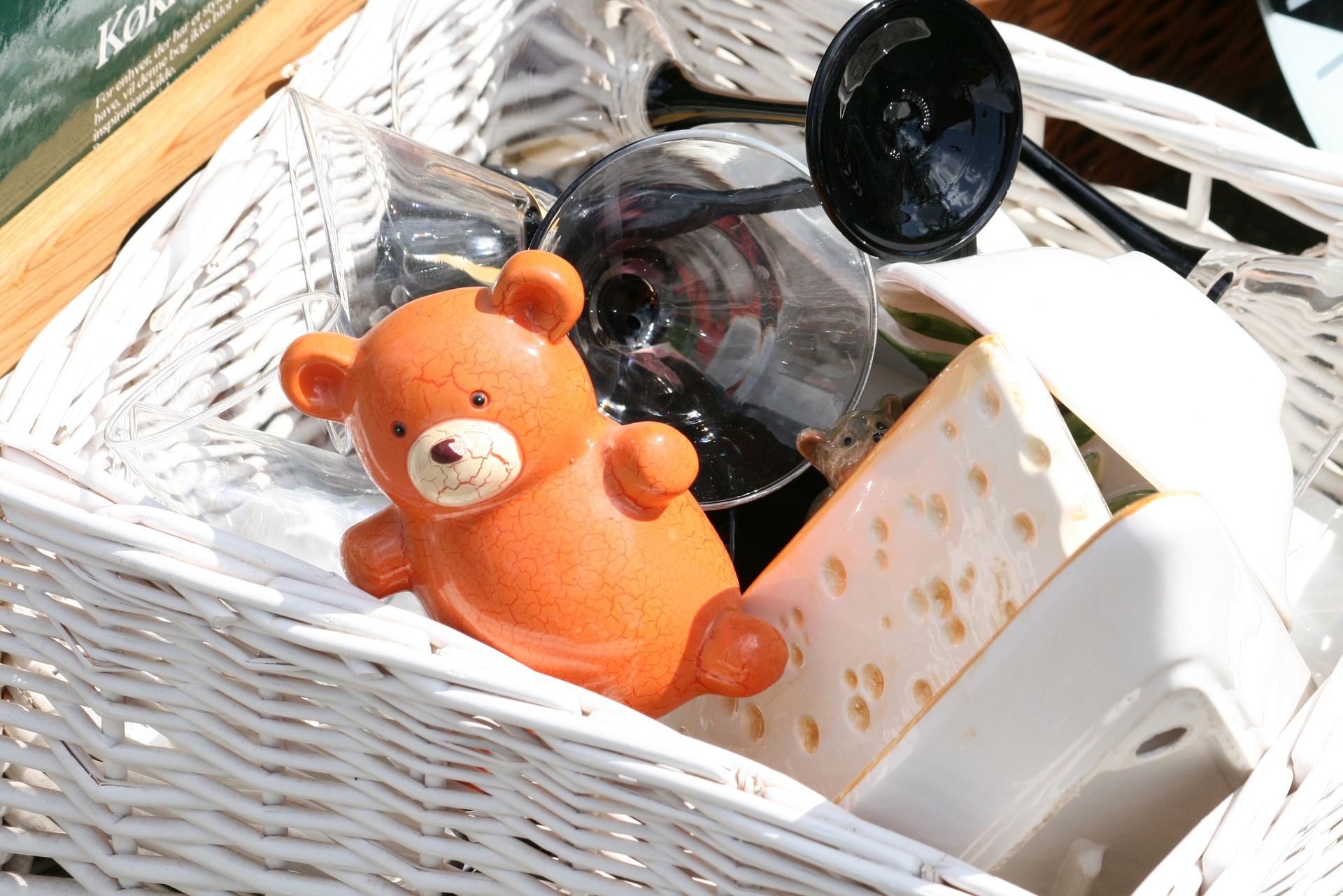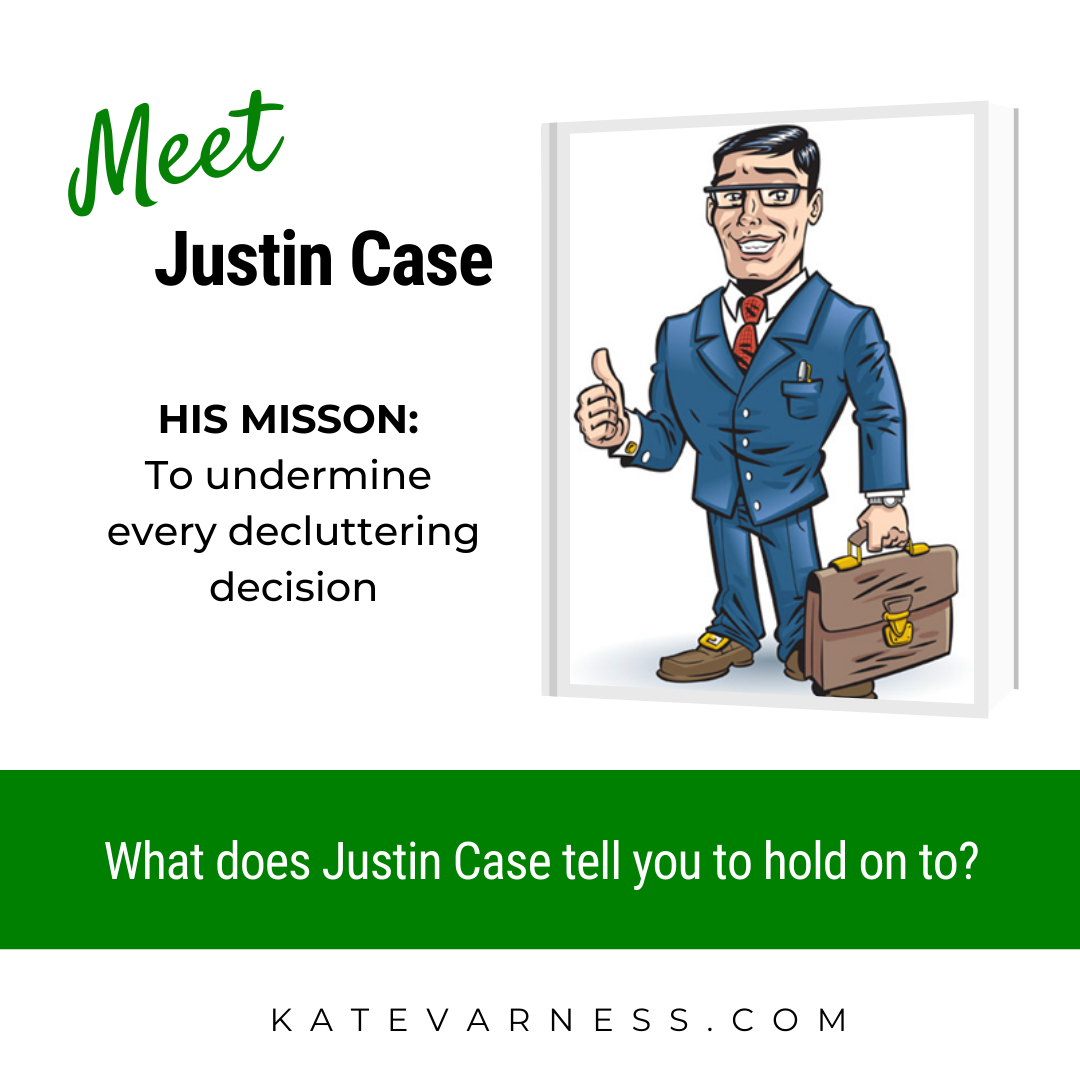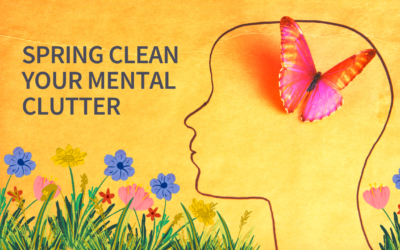
Sometimes in my presentations, I show a PowerPoint slide of a slick looking salesman named Justin Case. He appears next to you when you try to get organized, whether you invite him or not.
He’s kind of a pest.
Oh, I don’t know if you should get rid of that empty margarine container. You might need it someday to send food home with a dinner guest. Maybe you should just tuck that in with the other food storage containers for now.
Isn’t this mason jar just the handiest thing? You should probably keep it just for now just in case you decide to start canning. Put it with the other 50 jars you have in the basement.
Better not get rid of those old Consumer Reports magazines. How will you know the top 7 ways to evaluate a weather radio? Someday you might want to buy a weather radio and then you will have it.
I hope the above scenarios made you laugh knowingly and also sparked a sense of how ridiculous one’s thinking can become when deciding what to keep or pass on.
It’s time to tell Justin Case to buzz off.
Today, I am offering two ways to bypass fearful saving.
Complete the process of asking the what if question
Most people never get beyond asking the question, “What if I need it someday?” They interpret the question coming up as a signal to back away. It’s a scary question that is rooted in scarcity. They assume that if they don’t have it, that all will be lost.
But, is that really true?
Is it true that you will have no way to send food home with a dinner guest? Is it true that you will be unable to locate canning jars if you decide to start canning? Is it true that you will have no idea how to decipher which weather radio will be the best?
No, it is not true.
You don’t make it to this point in life without grit. You’ve had plenty of hardships that you have used creativity and resourcefulness to overcome. That inner resilience cannot be taken from you. Most certainly the resourcefulness will not be taken by recycling an empty margarine container, glass jar, or old magazine.
Don’t sell your resourcefulness short.
Ask yourself, “What would I do if I didn’t have this?” Brainstorm solutions. You could buy another new or at a thrift shop. You could borrow it. You could ask if anyone would give you one. You could ask for information from friends or search on the internet.
Repeat to yourself, “No one can take my resourcefulness from me.”
(Let me just insert here that you get to be the boss of your decisions. If you choose to keep 200 jars or margarine tubs or whatever, that’s up to you as you consider your space allotments and other people living there.)
Trust your inner knowing
Some of the fogginess of keeping something “just in case” is a result of being unable to tune into and trust what you desire in your life.
Do you want to take your childhood hobby of cross-stitch back up in retirement? You may not yet know.
It’s okay to delay a decision because you don’t have enough information. However, don’t leave that delayed decision totally open-ended.
Set a date to review this thought, write the date on a post-it note, and set the note with the cross-stitch. Perhaps you retire in August and the review note is for the following February. This gives you enough time to settle into retirement and know what hobbies resonate with you.
Create a process to distill what you want. Make a list of all the hobbies you have supplies for, then rank them in order of enjoyment. If that list includes 20 different hobbies, consider that it is humanly impossible to do all of those hobbies.
It’s time to be selective.
Your guide for deciding is your inner knowing. Some people call it a “gut feeling” and others call it “intuition.” As you encounter “what if” type things, ask yourself, “Is this how I desire to spend my time? Is this something I want to store in my precious space?”
Listen to your body as it tells you the answer.
You know what yes feels like. You know what no feels like. If your mind starts blabbering about how you “didn’t get your money’s worth” or “it’s wasteful to get rid of this” or “Joannie bought this for me at Goodwill,” tell your mind to stop talking.
It is time to trust the inner knowing response.
For anything that is in the middle, ask yourself, “What info do I need to make this decision? Am I being honest with myself about doing this? Is something else going on?”
Making decisions boils down to trusting your inner knowing.
If you haven’t already realized it, stuff decisions can go so much deeper. That doesn’t mean you should avoid making stuff decisions.
Do the opposite, actually. Set up more opportunities to make stuff decisions.
When you take the action of deciding on stuff, it brings up what’s underneath. And what comes up might be that it’s time to tune into and trust your inner knowing.
Would you like to tune in and trust your inner knowing?
If this is your struggle, I invite you to join the community I am building on Facebook in my free group, Make Space for Abundance. You can join here: https://www.facebook.com/groups/makespaceforabundance
You can subscribe to my weekly videos on my YouTube channel: https://www.youtube.com/channel/UCnzXT1-fJZRBl_jlB3_3Wxg
I also coach individuals to make amazing shifts in their inner and outer lives. Email me if you want to know more –
Ka**@Ka*********.com
Can’t wait to join you on your journey.



